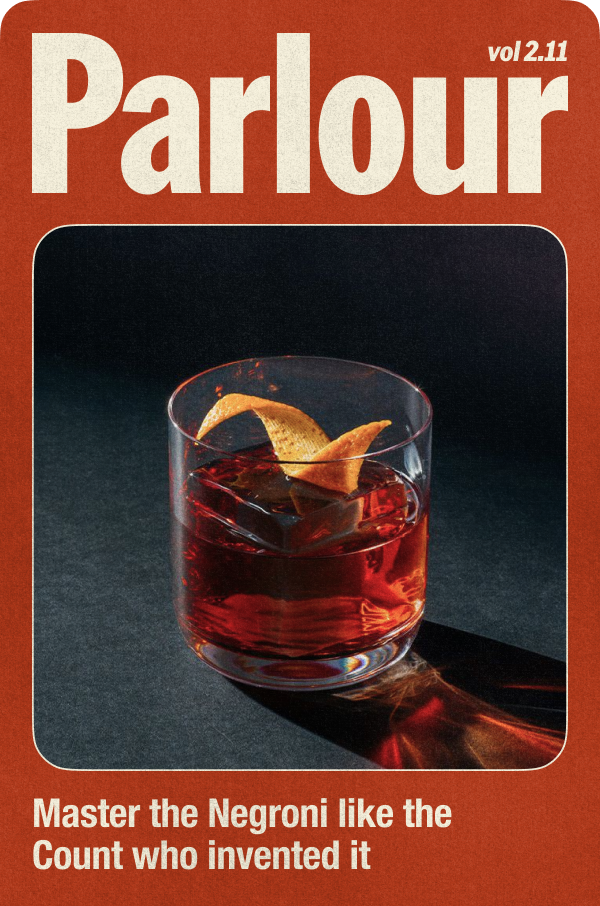
You find yourself in a dimly lit cocktail bar. You grab yourself a seat and take a quick glance at the bartender moving swiftly like a Swiss watchmaker. The menu arrives, heavy with options, but you already know your order… "Negroni, please."
Those two simple words signal everything about you in that moment. You appreciate complexity, without announcing it. You understand the best things in life require balance. You know that some choices never go out of style (because they were never really in fashion to begin with).
A Negroni is a liquid lesson in Italian sophistication. You may not realize it, but what's considered a simple cocktail actually connects you to an adventurous count who understood life's greatest pleasures come from interesting combinations. And every time you order (or make) one, you're participating in a century-old ritual.
Issue forwarded by a friend? Subscribe here.
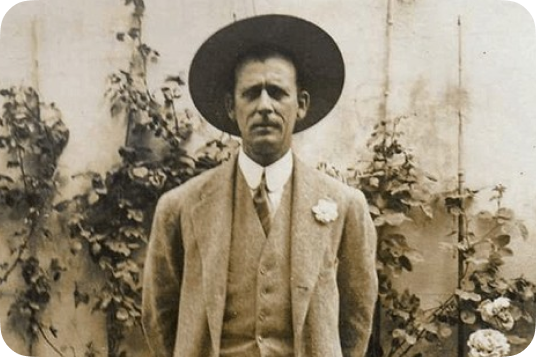
It all started with Count Camillo Negroni in 1919 in Florence. Picture a former cowboy turned Italian aristocrat who spent years in the American West before returning to his native Florence with a taste for stronger drinks.
The Count found himself at Café Casoni often, a popular Florentine café that was the kind of place where locals and travelers gathered for conversation and drinks. One evening, after getting tired of his usual Americano order (the cocktail, not the coffee drink), he asked his bartender, Fosco Scarselli, to strengthen it with gin instead of soda water. They created something entirely brand new. A drink that balanced bitter Italian traditions with the botanical complexity that gin brought from its English origins.
The Negroni became sort of a cultural currency after that moment. Both in subtle and profound ways. In Italy, if you order a Negroni during aperitivo hour, it connects you to a centuries-old café culture. In New York, it signals that you understand cocktail history. Anywhere where people who know gather, it's a quiet announcement that you value tradition and balance.
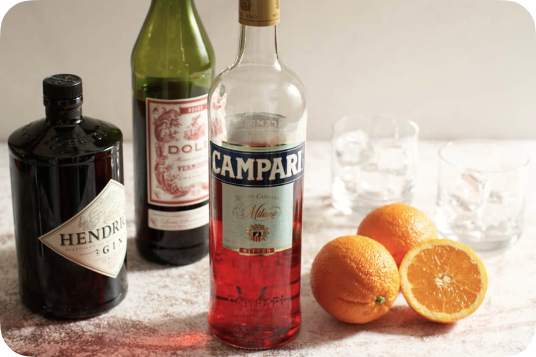
When you boil it down, the Negroni is a very simple cocktail. Equal parts gin, Campari, and sweet vermouth. One-third each, stirred over ice and finished with an orange twist. But technique matters more than you might expect.
Start with proper ice: Large ice cubes that melt slowly, chilling without diluting too quickly. The stirring method separates amateurs from those who get it. Thirty gentle rotations, not aggressive shaking. You're trying to marry the spirits, not force them into submission.
The orange twist technique: Don’t forget the orange twist. It can't be a wheel or a peel carelessly dropped in (gasp!). It has to be a proper twist. Hold the orange peel over the glass, color side down, and give it a confident pinch. You'll see the oils spread across the surface of the drink. The goal is to create an aromatic cloud that hits your nose before the first sip reaches your lips. That's when it becomes a sensory experience.
Glassware matters: Glassware is just as important. A rocks glass, heavy in your hand, is the best fit. Never a martini glass. It's not that kind of drink. The Negroni wants to be sipped slowly… not to rush through to the next thing.

Ok, so now you've mastered the Count's original formula. But what if you want to change it up? Add a twist? Maybe the classic isn’t quite your speed? Well, these might be:
Stir over ice, strain into rocks glass. Perfect for autumn evenings when you want Italian sophistication with Kentucky warmth.
Build in wine glass over ice, top with prosecco. "Sbagliato" means "mistaken" in Italian. Sometimes the best discoveries come from beautiful accidents.
Stir over ice, strain into a coupe glass. More delicate and floral, like trading a leather jacket for cashmere.
Even more tweaks worth trying: Your gin choice shapes everything. A London dry style of gin for that classic structure. It's more botanical if you want the drink to bloom differently. The types of sweet vermouth can offer some changes, too. Carpano Antica adds vanilla warmth, while Cocchi di Torino brings herbal complexity. And when it comes to the garnish, grapefruit adds brightness, and a lemon can bring some acid.
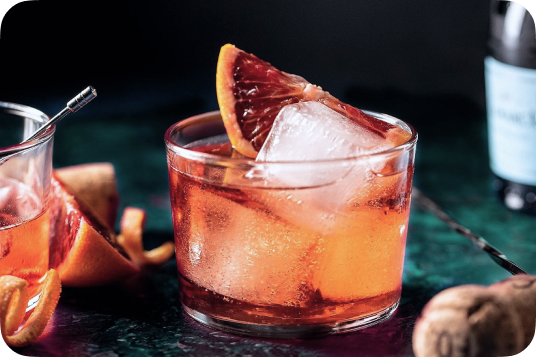
The point is to move beyond following recipes and to understand principles. Count Camillo didn't invent his drink by reading a manual. He understood what he wanted and asked for it.
Start by tasting each ingredient separately. Understand how your gin tastes alone, how Campari's bitterness evolves on your palate, and how sweet vermouth provides both sugar and herbal complexity. Once you know each ingredient, you can be the maestro of your own symphony.
At the same time, you can still respect tradition. Maybe your perfect Negroni uses slightly more gin. Maybe you prefer Aperol's gentler bitterness to Campari's more assertive bite. Remember, your Negroni becomes an extension of your personal style.
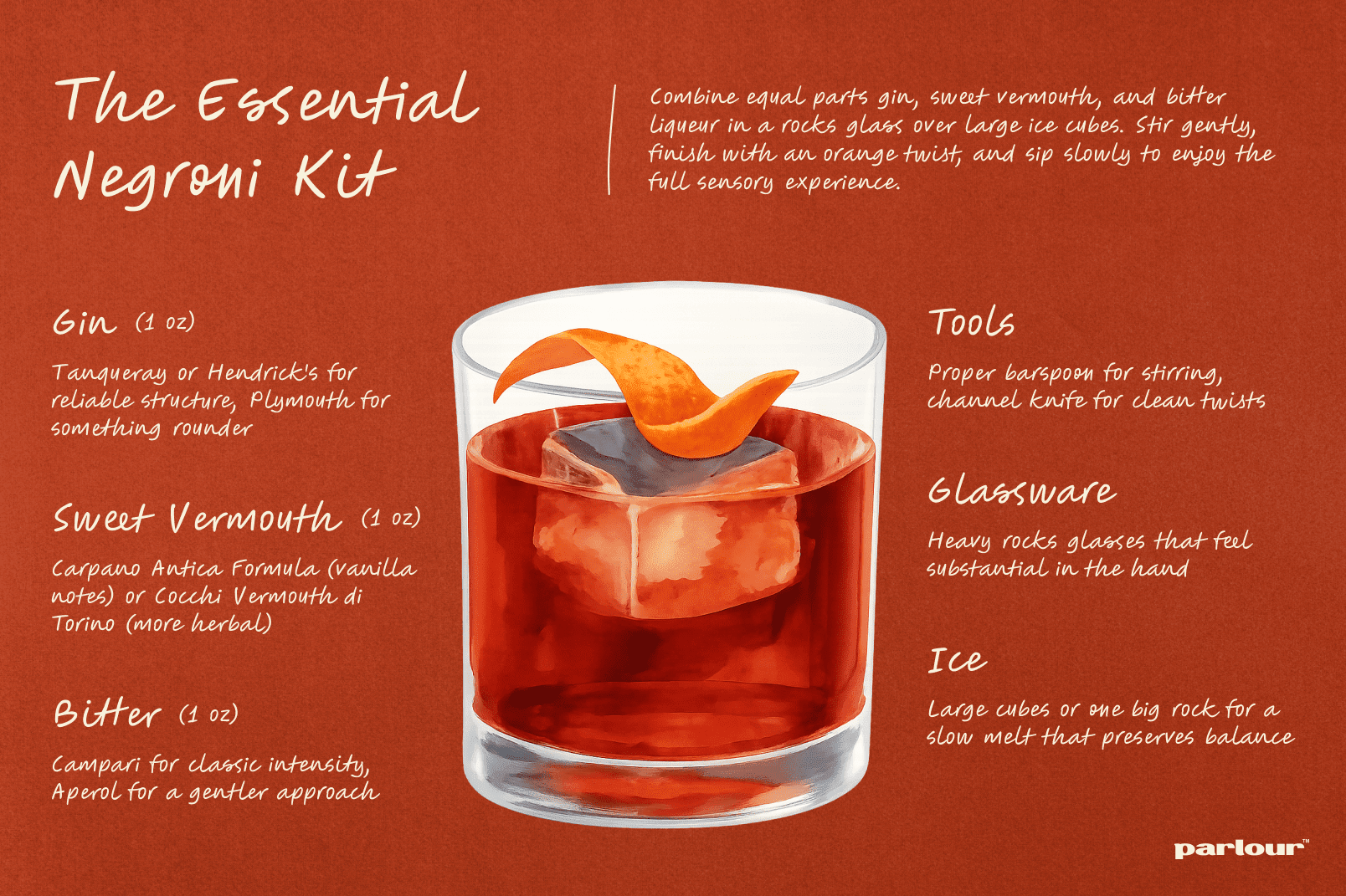
If you're up for a trip, there's two bars that truly understand the Negroni experience better than anywhere else on earth.
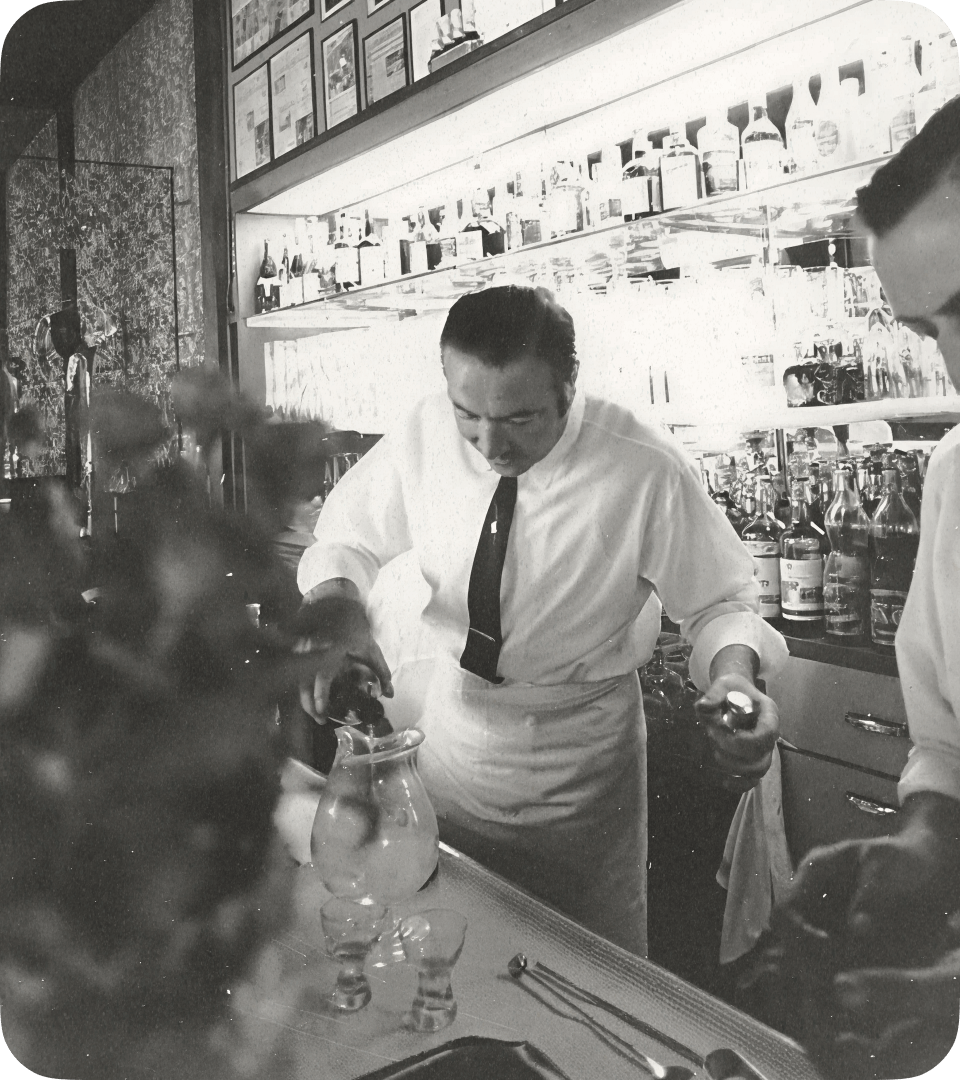
In Milan's Citta Studi district (Via Plinio 39), Bar Basso has remained unchanged since 1947. It's still operated by the Stocchetto family, who invented the Negroni Sbagliato in the 70s. They serve it in custom-made, thick stemmed glass designed by the founder, Mirko himself.
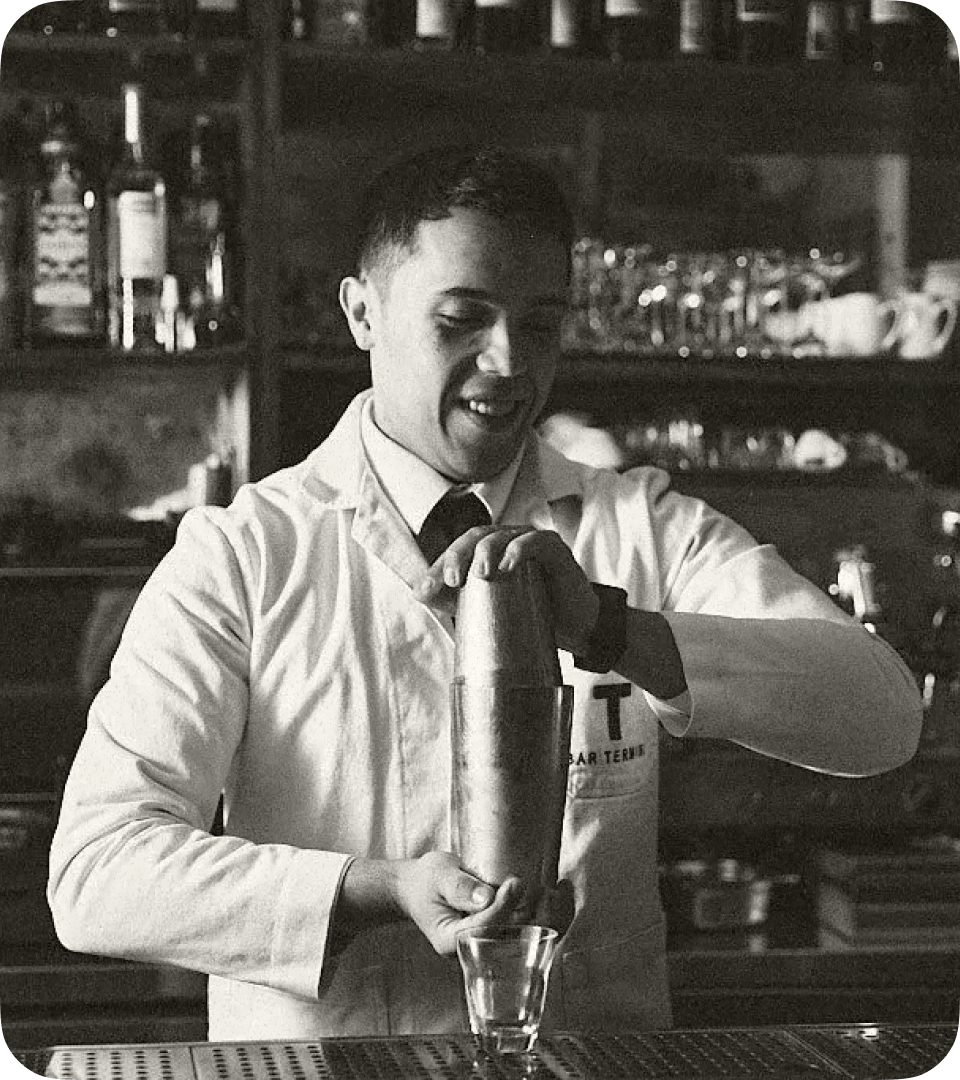
In London's Soho (7 Old Compton Street), Bar Termini offers four distinct bottle-aged Negronis: Classico, Superiore, Rosato, and Robusto. They are all different, but still honor that classic Negroni tradition.
Every time you stir those three ingredients over ice, you're taking part in an unbroken chain that stretches from Count Camillo's moment of inspiration to countless cafe tables across Florence to your glass tonight. The Negroni is all about taking time, savoring complexity, and making even a Tuesday evening feel significant.
Thank you for reading! Let us know what you thought of this issue by replying directly to this email. Cheers 🥂
Join 2,568 readers 💃🕺🏽